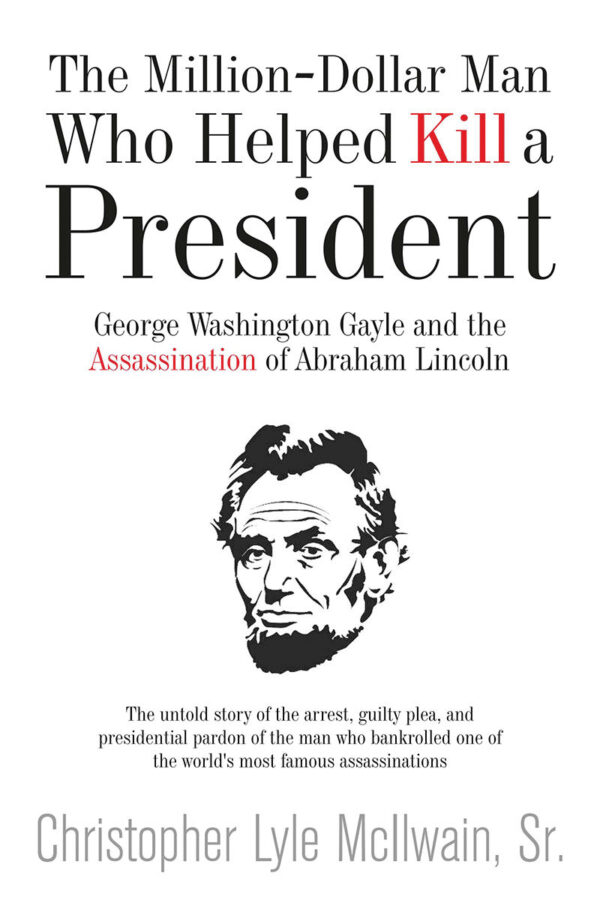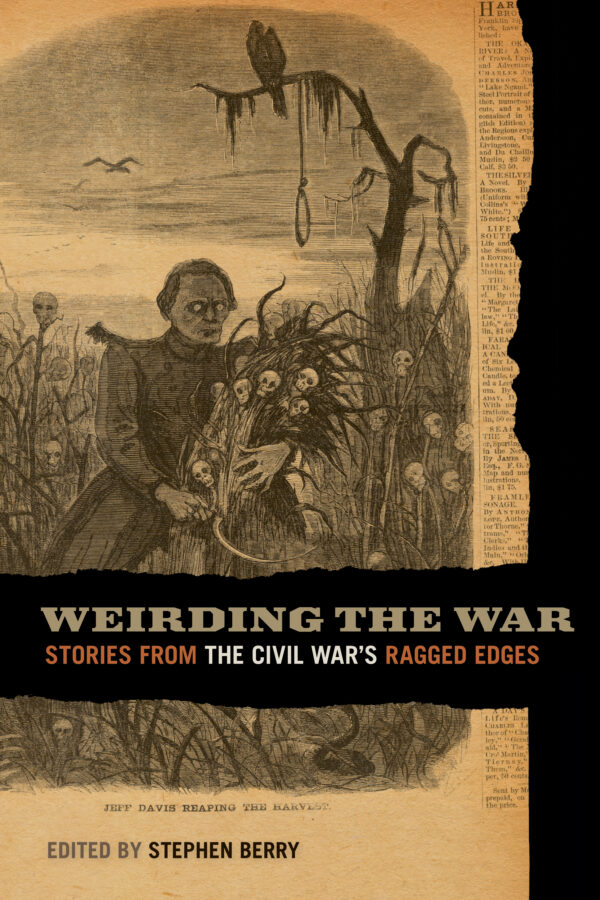The Million-Dollar Man Who Helped Kill a President: George Washington Gayle and the Assassination of Abraham Lincoln by Christopher Lyle McIlwain Sr. Savas Beatie, 2018. Cloth, ISBN: 978-1-61121-394-2. $32.95.
 The names and facts surrounding the April 1865 assassination of President Abraham Lincoln are well-known. Actor John Wilkes Booth, a Maryland native and fierce Confederate sympathizer, led a group originally brought together to kidnap Lincoln and hold him for ransom. However, the plot turned murderous in early April 1865 as the Confederacy collapsed and Lincoln spoke publicly about granting suffrage to black men. “It is unsatisfactory to some that the elective franchise is not given to the colored man,” the president said on the evening of April 11, 1865. “I would myself prefer that it were now conferred on the very intelligent, and on those who serve our cause as soldiers.” History records that Booth himself was in the crowd that night and told his companion, fellow conspirator David Herold, “That means n—–r citizenship! That is the last speech he will ever make.”
The names and facts surrounding the April 1865 assassination of President Abraham Lincoln are well-known. Actor John Wilkes Booth, a Maryland native and fierce Confederate sympathizer, led a group originally brought together to kidnap Lincoln and hold him for ransom. However, the plot turned murderous in early April 1865 as the Confederacy collapsed and Lincoln spoke publicly about granting suffrage to black men. “It is unsatisfactory to some that the elective franchise is not given to the colored man,” the president said on the evening of April 11, 1865. “I would myself prefer that it were now conferred on the very intelligent, and on those who serve our cause as soldiers.” History records that Booth himself was in the crowd that night and told his companion, fellow conspirator David Herold, “That means n—–r citizenship! That is the last speech he will ever make.”
A few nights later on April 14, Booth made good on his threat, shooting Lincoln at Ford’s Theater and escaping into the night. Around the time Booth shot Lincoln, Lewis Powell attacked and severely injured Secretary of State William Henry Seward (who was already bedridden recovering from injuries suffered in a carriage accident). Another conspirator, George Atzerodt, tasked with killing Vice President Andrew Johnson, lost his nerve. Lincoln died early the next morning, Seward survived, and Johnson became the seventeenth President of the United States. Booth was captured and killed by federal troops in Virginia twelve days later; Powell and Atzerodt, along with alleged co-conspirators Mary Surratt and David Herold, were tried, convicted, and hanged less than three months after Lincoln’s death.
None of the conspirators ever publicly claimed to have been motivated by money or any other factor besides avenging the doomed Confederacy. However, author Christopher Lyle McIlwain Sr. posits that Alabamian George Washington Gayle should perhaps be considered one of the Lincoln assassination conspirators. After all, Gayle publicly tried to raise one million dollars to encourage someone to assassinate Lincoln, Seward, and Johnson. Gayle, himself a dedicated secessionist and defender of slavery, took out a solicitation in the December 1, 1864 edition of the Selma Dispatch newspaper which stated that, “if the citizens of the Southern Confederacy will furnish me with the cash, or good security, for the sum of $1,000,000, I will cause the lives of Abraham Lincoln, William H. Seward and Andrew Johnson to be taken by the 1st of March next.”
McIlwain’s book is really more of a biography of George Washington Gayle than a history of a new twist to the Lincoln assassination. The Million-Dollar Man Who Helped Kill a President is an excellent antebellum political history of Gayle’s hometown of Cahaba and the region of Alabama that includes Dallas County and the city of Selma. The author spends well over half of this short book (140 pages of text) detailing the area’s agitation for secession before the war and demonstrates that this area of Alabama had strong ties to the state of South Carolina—that “hellhole of secession,” as William Tecumseh Sherman called it.
While McIlwain shows that prior to the Lincoln murder Booth and other conspirators made a few cryptic references to potentially coming into a fortune, he does not have a smoking gun (pardon the pun) showing that Booth and the others expected to collect on Gayle’s million dollar deal. It is compelling that Booth’s group ended up attacking (or planning to attack) the same three individuals Gayle named in his announcement—Lincoln, Seward, and Johnson—but there is still no hard evidence indicating that any of the conspirators ever met or knew of George Washington Gayle. This is not to say that McIlwain’s writing fails in any way; rather, the evidence simply does not exist or has not been discovered.
Though there is not enough here to warrant a reinterpretation of the Lincoln assassination, McIlwain still provides an excellent microhistory of Dallas County, Alabama, and the surrounding area before and during the Civil War. The book is also a fine biography of Gayle, a prominent Alabamian probably unknown to most outside that state. The Million-Dollar Man Who Helped Kill a President does an admirable job of bringing attention to Gayle’s life and his words and deeds supporting the Confederate States of America. Even without his still-unproven link to Lincoln’s murder, Gayle is worthy of further study as a prominent southerner who not only cast his lot with the Confederacy, but openly agitated for the murder of the President of the United States.
Todd Arrington is Chief of Interpretation & Education at James A. Garfield National Historic Site in Mentor, Ohio.

